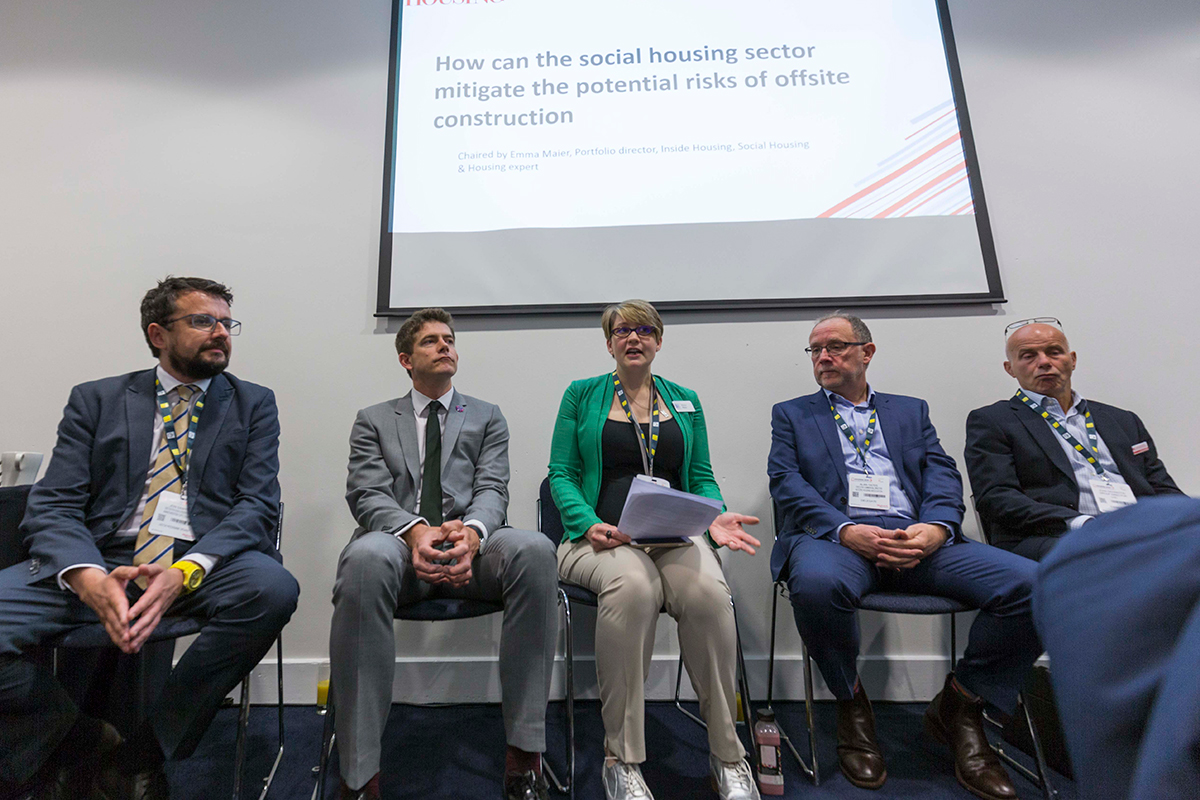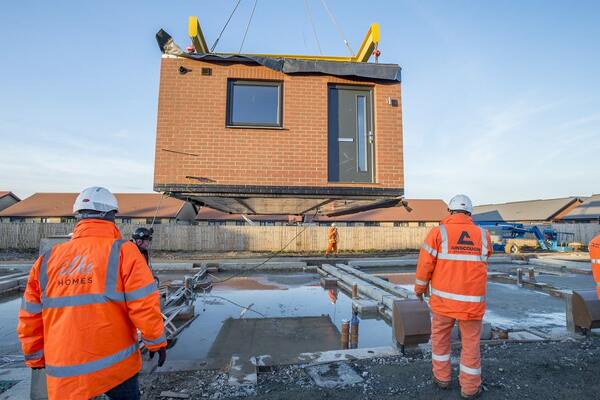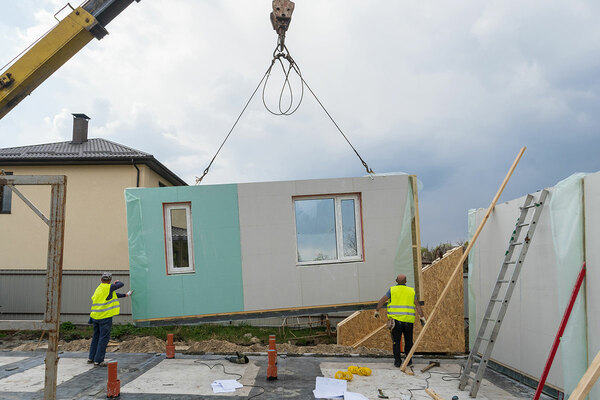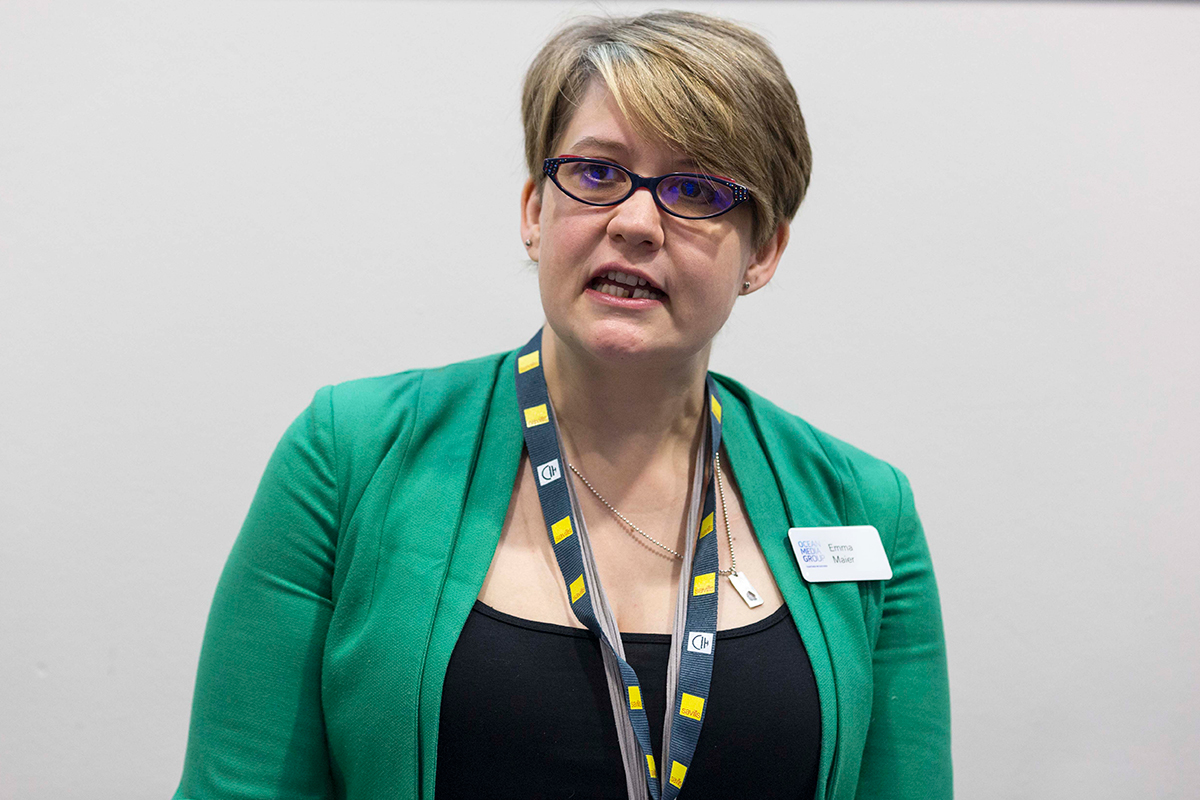What are the risks of MMC?
If modern methods of construction are the most effective way to build more homes, what are the challenges, and how can they be mitigated? Inside Housing reports. Photography by Guzelian
In association with:

Offsite construction has been touted as the potential answer to the housing crisis. As well as being the most effective way to speed up the delivery of the houses the government has pledged to build, respondents say that it could also deal with the skills shortage in the construction industry.
At the Housing 2019 conference and exhibition in Manchester last month, minister for housing Kit Malthouse reiterated his belief that modern methods of construction (MMC) are the best way to produce more homes with better audited standards of quality – and asked people to think differently.
At the same event, Inside Housing and LHC hosted a breakfast briefing to further discuss how adopting MMC could help local authorities and housing associations meet housing needs and explore the potential risks.
Consider quality
Jon Sawyer, director of housing and residential growth at Manchester City Council, opens the session.
“In Manchester, we intend to build 32,000 new homes by 2025, 20 per cent of which will be affordable. There is also a longer-term project, Northern Gateway, to deliver 15,000 homes on a single site,” Mr Sawyer says. “We have some massive challenges ahead and only MMC will help us realise those aims.”
“This sector needs to be clear that quality matters because better quality homes last longer. If you aim for quality, you’ll get value for money over many years and not just a saving on the day that the building arrives.
“If you look at the speed that it takes to get that building on site quicker, you can start to make an argument for why it might cost a little more for that building now but the savings will be greater in the long term.”
Jon Sawyer, director of housing and residential growth, Manchester City Council
Manchester Council announced at the conference that it will be working with Galliford Try Partnerships and modular home manufacturer Ilke Homes on a new 75-home scheme on a cleared site in Newton Heath.
Mr Sawyer reveals: “It’s a project that will be documented by Channel 4 and George Clarke, watching us build the homes over the next year. It will also be a zero-carbon pilot. We’ve gone all in to make using MMC a success.”
Increased quality control
Harry Swales, general manager – investment strategy at Homes England, agrees.
“While quality is about the design aesthetic and communities, it’s also the vigour with which we drive quality assurance through the process. Bringing a digital spine to the way we do things allows us to be more manufacturing-driven and maintain the homes in the longer term. It’s about harnessing digital tools to provide a transparent audit trail in a more controlled environment.”
Harry Swales, general manager – investment strategy, Homes England
Alan Yates, deputy chief executive of Accord Housing Association, suggests it is not so much about looking at the risks that might be involved with MMC but also the risk of not adopting MMC. For me, the reason for moving to MMC is increased build quality.”
Accord embraced the concept in 2011 by opening its own not-for-profit offsite manufacturing facility, Local Homes, to supply homes for its housing association. Last year, it opened a factory that can manufacture 1,000 homes a year.
Before doing this, Mr Yates visited factories in North America and they all advised him to “educate the client”. He says there is a need to be clear with housing associations about what everyone wants to achieve with MMC.
Environmental benefits
Mr Yates adds: “When we consider homes built by MMC, it is not just the initial cost that matters, but also an overall value. We must look at the long-term benefits of the reduced environmental impact of producing a home in this way and that it is reducing the amount of energy consumed, while it is inhabited.
Inside Housing’s Emma Maier, who chaired the event
“From an environmental perspective, it is not possible to continue building with concrete and bricks. There’s a real risk to building houses that aren’t zero-emissions compliant. Moving to MMC is a great opportunity for the construction industry to achieve this and to raise standards. If we have to retrofit the homes we’re building today in 10 or 15 years’ time to make them zero-carbon, we’ve failed.”
“It’s vital to choose good, high-quality materials and other technologies can be added to that structure. MMC manufacturers are listening to customers, so if collectively as a sector we ask for better quality, improved environmental performance and warranties, that’s what we’ll get.”
Alan Yates, deputy chief executive, Accord Housing Association
Next steps
Mr Yates concludes: “For local authorities and housing associations considering MMC, I urge you to visit a factory and to take board members and tenants. It will give confidence to everyone to see it. You have to be the leaders in the future of housing.”
John Skivington, group director at LHC, agrees that is important. “When I’ve spoken to social landlords, they are looking at supply-side risks. They are anxious about whether the properties will last as long as traditional builds. They wonder if they will be able to retain their competitiveness in the market and whether it will affect their reputation with residents.
“The confidence in the product is the biggest risk. We need assurances and warranties, and as soon as we can show this, we’ll see greater confidence in MMC. The biggest challenge to moving forward is leadership. There has to be a strategic view of MMC from clients. The social sector is often the guinea pig, but it also has a better perspective of its asset development over 30 years.”
John Skivington, group director, LHC
Taking a strategic view will help you to make a decision, Mr Skivington says. “Ask yourself, ‘What does my housing stock need to be in 20 or 30 years’ time?’ It’s difficult to find an answer that is not MMC.
“When the Addison Act [the 1919 act that kick-started the large-scale delivery of council housing] was introduced, local authorities were thinking about how to offer homes and outdoor spaces for a better way of living.
“No one was thinking of doing the minimum so don’t do that now. We have to think big and move forward.”














